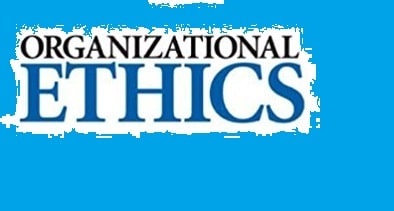Organizational Ethics
An organization exists when individuals from different works of life with the same interests come together to work towards achieving predefined goals and objectives. On the other hand, ethics are the principles and values used by an individual to control his or her actions and decisions. This article gives you an insight into the secrets that help organizations/businesses stand the test of time. some of these secrets include, what is organizational ethics, examples, and ethics in organizational behavior. So, make sure you read to the end…
Employees are the highest assets of an organization therefore it is of key importance for them to maintain decency and the right attitude to work in their workplace. Moving on let’s find out what organizational ethics is.
What is Organizational Ethics?
Organizational ethics are a set of moral guidelines that influence how a company serves its customers and treats its employees. However, every organization and individual business has its own ethical conduct that directs its employees and customers.
It also refers to the way an organization should act/respond to internal & external catalysts. Organizational ethics includes various guidelines and principles that conducts the way individuals should behave at the workplace. It also refers to the code of conduct of the individuals working in a particular organization.
Every organization functions to earn profits but how it makes money is more important. So, no organization should stoop so low to depend on unfair means to earn money. Moreover, one must understand that money is not the only important thing, integrity and honor are more important. Below is a brief list of what an organizational ethic should look like:
#1. Employees should on no account indulge in the destruction or manipulation of information to get results
#2. Confidential data or information must not be leaked under any circumstances.
#3. There must be absolute transparency in monetary transactions and all kinds of trading.
#4. Organizations must not discriminate against any employee on the grounds of sex, physical appearance, age, or family background.
#5. Employees must be paid according to their hard work and efforts. For instance, if individuals are working late at night, employers should make sure overtime is paid.
#6. Stealing office property is strictly unethical.
#7. Organizations must take care of the individual safety of the employees.
#8. Never lie to your customers. It is also unprofessional to make false promises to the consumers.
Read Also: RACIAL SENSITIVITY TRAINING: Best Strategies to Promote Diversity and Inclusion
Ethics in Organizational Behavior
Therefore, ethics in organizational behavior is the framework of values for moral behavior. It is a social goal to ensure that an organized society prospers and everybody’s interest is served.
Meanwhile, let’s examine the issue of ethics in organizational behavior in two aspects connecting to life, namely business and profession. The business represents the entrepreneurs and the profession represents those who are employed in an organization or who work for an employer. In other words, ethics in organizational behavior are equally applicable for employers and employees. Organizations can benefit in the best way when they make their employees work by the ethical codes and values.
So, in the case of a profession, it could be the professional association or the guild and in the case of a society where there is a government, it is the government agency, which ensures that the laws are obeyed. In fact, in a secular society, it is the law that lays down what is acceptable conduct and what is not. Acceptable conduct would be encouraged and consequently, unexpected conduct would be considered illegal and punishment melted out to offenders.
Organizational Ethics Examples
#1. Integrity
Integrity meaning taking a decision and sticking to it, most especially when there is a lot of pressure to do otherwise. It shows honor and courage when a rare value like integrity can be found in an organization.
#2. Transparency
Transparency involves accurately representing facts, telling a truth exactly as it is, and communicating clearly all details of the kind of services an organization intends to render. So, this is the foundation of a strong relationship with customers, which directly impacts the success and stability of a company. Hence, the more transparency a company shows, the more the public is likely to trust its service, product, or mission.
#3. Trustworthiness
Companies that keep promises and fulfill commitments to their employees, business partners, and customers display their commitment to business ethics. Trustworthiness is a monumental component to success in business because people typically like to work with and buy from those they believe are dependable and trustworthy.
#4. Loyalty
Loyalty encompasses all relationships a business has including those with staff, partners, investors, and consumers. It also allows a business to make decisions benefiting these relationships and overcome influences from outside conflicting interests. So, this shows the business values the advancement of the company and employees over an owner’s personal gain.
#5. Fairness
Companies should also strive to act fairly and commit to exercising their power justly. Organizations should only use honorable methods to gain an advantage over the competition. Also, fairness relates to equality, which means having an open mind and treating everyone fairly. Fairness and equality can be involved in hiring practices, marketing initiatives, business partnerships, as well as competing within the market for new consumers or clients.
#6. Compassion
Ethical organizations demonstrate genuine kindness, understanding, and care for the livelihood of others. Most importantly, this will mean accomplishing business goals to produce the most good while causing the least amount of damage. When a decision needs to be made, carefully consider the options and how each one may affect a person or a community and also how it helps reduce the potential negative impacts, depending on the industry.
#7. Respect
Having basic respect for the rights, privacy, and dignity of people—including individuals within and outside the company—is an important organizational ethical standard. Companies that treat all humans with respect regardless of religion, sex, race, nationality, or other signifier are often reviewed positively in the public eye.
Respect also relates to client or customer privacy since companies are held to the ethical standard of keeping information such as bank account details, health background, or social security numbers private. Moreover, maintaining this level of privacy shows respect and ensures the company operates within a variety of industry-specific laws.
#8. Lawfulness
Organizational ethics also include abiding by legal regulations and obligations regarding their business activities like taxes, worker safety, and employment and labor laws. Companies that work within the boundaries of the legal system are more credible and honorable, which can establish a strong positive reputation as an employer that encourages high-quality candidates to apply for roles.
#9. Responsibility
Organizations with high ethical standards recognize their responsibilities to their employees and customers and understand how the conduct of their leadership affects the business. Companies have a responsibility to lead with the values and mission of the organization to make logical decisions that benefit everyone. Hence, company leaders should implement ethical standards and model them to others by displaying the standards themselves.
Organizational Working Ethics
#1. It is important to obey the company’s rules & regulation
#2. Effective communication is also very important to avoid misunderstandings when dealing with issues in the workplace.
#3. Developing good Professional relationships between low-level and high-level employees will make it easier for ideas to be shared and knowledge to be passed to junior employees.
#4. It is important for employees to always take responsibility for decisions made both individually and in a team. This is, in fact, a leadership trait that every employee who is looking to take up a managerial position in the future should exhibit.
Professionalism Standards
There are professional standards that everything an employee does in the workplace. The use of informal words in a formal workplace is highly unprofessional. So, this includes the way they speak, the kind of work they deliver, and their relationship with coworkers and customers.
#1. Accountability is also a very good trait of an employee. One of the things that may short-change talent and responsibility is the lack of accountability.
#2. Trust is very important in an organizational ethic. So, employees are advised not to involve in anything that may make his or her employer withdraw trust. As an employee of a company, your employee trusts you to get work done perfectly on time.
#3. Employees should be able to adapt and also be willing to learn new skills.
Work Smarter
Don’t just work hard, work smarter. So, the reason why you see an employee promoted to the post of manager after just 2 years and a hardworking employee who has been with the company for 10 years failed to get a promotion is smart work.
For instance, there are 2 employees who work as are data scientists (meaning they collect data and analyze them). A smarter employee will use the Formplus data collection tool to collect data and receive real-time data analytics, while a hard-working employee will print paper-based forms and do the hard work of sharing them with respondents.
Conculsion
Organizations should strive to create a system that makes it as simple as possible to be good. That means paying attention to the situations in which people find themselves, incorporating ethical principles into strategies and policies, keeping ethics at the forefront of people’s minds, rewarding ethical behavior with a variety of incentives, as well as encouraging ethical norms in day-to-day practices. While doing so will never turn a group of humans into a swarm of angels, it will assist them in being as ethical as they are capable of being.
Frequently Asked Questions
What is an example of organizational ethics?
The uniform treatment of all employees is an example of corporate ethics. All employees, regardless of color, religion, culture, or lifestyle, should be treated with respect by small business owners. Sensitivity training is one technique to encourage uniform treatment in companies.
What are the elements of organizational ethics?
- Respect: As a business owner, you must respect yourself and surround yourself with individuals who can respect you
- Honor: A crucial component of excellent ethics is good people
Integrity is defined as… - Focus on the customer
- Dedicated to achieving goals
- Taking chances
- Zeal
- Persistence:
Who is responsible for ethics in an organization?
Managers are held accountable for their own acts and judgments in terms of ethical standards. Managers may be required to follow a distinct professional code of ethics in addition to the organization’s ethical code, depending on their role, duties, and training.
- Business Ethics Definition: pros and cons to managers [case study]
- BUSINESS ETHICS: Definition, Examples, and Benefits
- ETHICAL INVESTING: Definition, Types, Pros, and Cons
- 4 Essential pillars to gaining trust in business.
- Marketing Management: All You Need to Know
- 5 Top Management Consulting Services in High Demand (Updated)
- How Businesses Can Ensure Data Integrity Of Digital Documents






